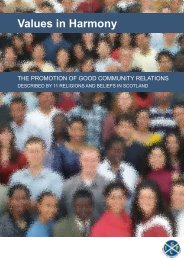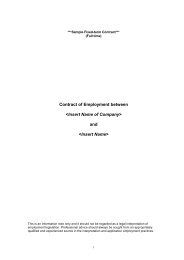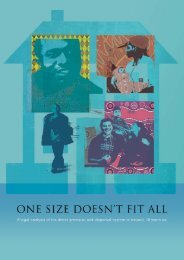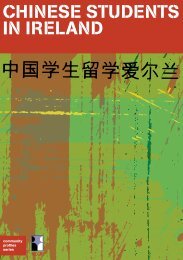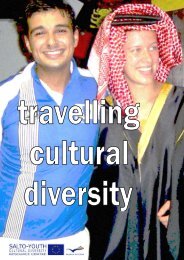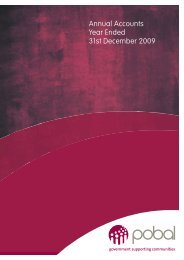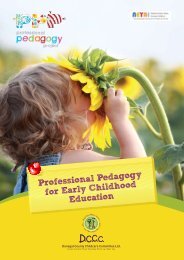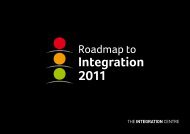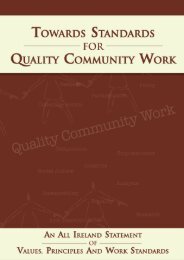Intercultural Education in the Post-Primary School - National Council ...
Intercultural Education in the Post-Primary School - National Council ...
Intercultural Education in the Post-Primary School - National Council ...
You also want an ePaper? Increase the reach of your titles
YUMPU automatically turns print PDFs into web optimized ePapers that Google loves.
Chapter 7 deals with assessment andcultural diversity. It highlights <strong>the</strong> ways <strong>in</strong>which different forms of assessment canbecome biased or unreliable <strong>in</strong> a culturallydiverse context and it provides guidance onhow teachers can broaden <strong>the</strong> range oftools used for assessment.Chapter 8 explores <strong>the</strong> creation of asupportive language environment forlearners of Irish and English, withparticular reference to students who arelearn<strong>in</strong>g <strong>the</strong> language of <strong>in</strong>struction as asecond language.These guidel<strong>in</strong>es are designed to providesupport for all <strong>the</strong> members of <strong>the</strong> schoolcommunity, <strong>in</strong>clud<strong>in</strong>g teachers, schoolmanagers, support staff and parents.While <strong>the</strong>se guidel<strong>in</strong>es focus ondiscrim<strong>in</strong>ation on <strong>the</strong> basis of ethnicity,many of <strong>the</strong> underly<strong>in</strong>g ideas are equallyapplicable to o<strong>the</strong>r forms of discrim<strong>in</strong>ationsuch as sexism, ageism or discrim<strong>in</strong>ationaga<strong>in</strong>st people with a disability.These Guidel<strong>in</strong>es on <strong>Intercultural</strong><strong>Education</strong> <strong>in</strong> <strong>the</strong> <strong>Post</strong>-<strong>Primary</strong> <strong>School</strong> areaccompanied by Guidel<strong>in</strong>es on <strong>Intercultural</strong><strong>Education</strong> <strong>in</strong> <strong>the</strong> <strong>Primary</strong> <strong>School</strong>. Both setsof guidel<strong>in</strong>es are based on <strong>the</strong> same keypr<strong>in</strong>ciples and <strong>the</strong>mes. Toge<strong>the</strong>r, <strong>the</strong>yprovide a context <strong>in</strong> which young peoplewill cont<strong>in</strong>ue to develop <strong>in</strong>terculturalcompetence <strong>in</strong> an <strong>in</strong>tegrated way as <strong>the</strong>ytransfer from primary to post-primaryeducation.In this respect, <strong>the</strong>y deal with a wide rangeof issues, <strong>in</strong>clud<strong>in</strong>g school plann<strong>in</strong>g,classroom plann<strong>in</strong>g, assessment and <strong>the</strong>language environment.“ <strong>Intercultural</strong> education isimportant for all studentsto help <strong>the</strong>m to participate<strong>in</strong> an <strong>in</strong>creas<strong>in</strong>gly diverseIreland, Europe and globalsociety...”<strong>Intercultural</strong> <strong>Education</strong> <strong>in</strong> <strong>the</strong> <strong>Post</strong>-<strong>Primary</strong> <strong>School</strong>v




